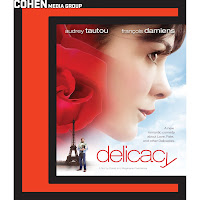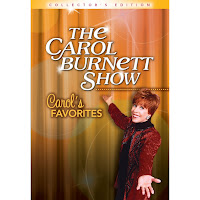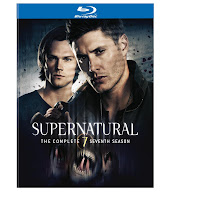the traveler's resource guide to festivals & films
a FestivalTravelNetwork.com site
part of Insider Media llc.
Reviews
Theater Roundup: "Enemy" on Broadway; "Red Dog," "Exonerated," "Detroit" Off Broadway
- Details
- Parent Category: Film and the Arts
- Category: Reviews
- Published on Tuesday, 02 October 2012 10:00
- Written by Kevin Filipski
An Enemy of the People
Henrik Ibsen's play
adapted by Rebecca Lenkiewicz
directed by Doug Hughes
Red Dog Howls
Written by Alexander Dinelaris
directed by Ken Rus Schmoll
The Exonerated
Written by Jessica Blank and Erik Jensen
directed by Bob Balaban
Detroit
Written by Lisa D’Amour
directed by Anne Kauffmann
Some of that is on display in the Manhattan Theatre Club’s new production, which is erratically directed by Doug Hughes and breathlessly enacted by a cast utilizing British playwright Rebecca Lenkiewicz’s crude adaptation.
Live Review: The Killers at the Paradise Theater
- Details
- Parent Category: Film and the Arts
- Category: Reviews
- Published on Monday, 01 October 2012 16:48
- Written by Abner Willis
 In years past, The Killers have taken on personas as gender-bending nightclub goers (their debut alum, Hot Fuss), dusty Americana underdogs (Sam’s Town), and glitzy Vegas showmen (Day & Age). They bring irony to their poses, and their newest is no different.
In years past, The Killers have taken on personas as gender-bending nightclub goers (their debut alum, Hot Fuss), dusty Americana underdogs (Sam’s Town), and glitzy Vegas showmen (Day & Age). They bring irony to their poses, and their newest is no different.
On September 18, 2012 The Killers were supporting their first album in five years – the triumphant Battle Born – and playing the role of World’s Biggest Band.
September '12 Digital Week V
- Details
- Parent Category: Film and the Arts
- Category: Reviews
- Published on Saturday, 29 September 2012 05:00
- Written by Kevin Filipski
Despite a few oddly enjoyable meals that the 3D effects present with a certain cleverness, the movie remains a dull, unfortunate example of “concept” beating a sense of decent filmmaking. The Blu-ray imagery maximizes the 3D effects.
Tautou does what she can, but the movie continually pulls her toward frolicsome Amelie territory, except it feels arbitrary. The hi-def image is excellent; extras include a Tautou interview and making-of featurette.
Even though it clocks in at a mere 78 minutes, this mystifying in-joke drags badly, and the brothers are played with little chemistry by Steve Zissis and Mark Kelly. Now that it’s out of their system, maybe the brothers can make something more interesting like Cyrus and Jeff Who Live at Home. The Blu-ray looks fine; extras include featurettes.
The acting, of course, is excellent; Joanna Kulig and Anais Demoustier are persuasive call girls, and Juliette Binoche brings her customary sensitivity and intelligence to the journalist. But despite much nudity, Elles is figuratively covered up. The hi-def transfer is good.
Footage of his abortive ‘80s solo projects, including his Barcelona collaboration with soprano Montserrat Caballe (also seen in interviews), doesn’t rehabilitate that aspect of his career, but it’s good of Thomas to show the opposite of the gazillion-selling Queen empire. The Blu-ray image is first-rate, despite vintage footage. Extras include a Mercury interview, Caballe interview and Barcelona making-of.
This important glimpse of an artist at work also shows him as an engaging if occasionally distant presence: when Belz gets him to discuss his life briefly humanize a man most see in the abstract. On Blu-ray, the colors of Richter’s paintings pop off the screen amazingly; extras are a Richter interview and views of his exhibitions.
Lisa was so bizarre that it was reshot (with Robert Alda as a priest) and recut into Exorcism, less satisfying but deeply disturbing in its own right. The films retain their graininess on Blu-ray; all three features have commentaries and there’s a Bava interview on the Lisa/House disc.
The 23 episodes contain enough action thrills for unfinicky fans, but there’s a spark missing among the cast that was never an issue during the Jack Lord-James MacArthur days. The Blu-ray image is superb; extras include deleted scenes, featurettes, audio commentaries, the ever-present gag reel and a crossover NCIS: Los Angeles episode.
Although it’s great that all six features are finally available on Blu-ray, the hi-def transfers are not up to par, with too much digital noise reduction disappointing fans.
Although it’s not as outright ugly as Robert Zemeckis’s performance-capture flicks (Polar Express, Beowulf), the facial and movement “fakery” is a deal-breaker: just as Pixar’s cartoons do little for me, so do CG films, technically accomplished as they are. If it’s in your wheelhouse, however, go for it. The Blu-ray image is good; extras include making-of featurettes and a gag reel.
This five-disc set collects several of the star’s favorite episodes, which include guest stars Steve Martin, Joan Rivers, Betty White and Maggie Smith, for starters. The episodes are complemented by choice extras, like a reunion of Lyle, Vicki, Tim and Carol (Harvey, unfortunately, died in 2008).
New York’s season opener about the 10th anniversary of Sept. 11 has powerful writing and acting. Extras on all three sets include deleted scenes and featurettes; Miami and CSI include commentaries; Miami and New York include gag reels.
Eva Mendes, who plays Mom with a single-minded intensity laced with humor, gives her best movie performance. And young Cierra Ramirez, as the daughter who’s 15 going on 30, is a real find: so natural and unaffected, she’s definitely someone to watch. The lone extra is a making-of featurette.
Parker herself is always engaging, even when enraged, and Demme presents her story with the sympathetic eye marking his best work like Melvin and Howard and Married to the Mob. Extras include a Demme interview and commentary.
The literal title, Gianni and His Women, was changed to become more universal, although the original title works better as ironic commentary. Extras include a Di Gregorio interview and on-set footage.
This recording—by the Royal Liverpool Philharmonic Orchestra under Paul Mann’s baton—is an all-star affair, with Iron Maiden’s Bruce Dickinson on vocals, all-star session man Guy Pratt on bass, guitar parts played by Darin Vasilev, Jon Bonnamassa and Steve Morse, and Lord himself as organist. The 45-minute wayward work goes on too long but remains a listenable mash-up of rock and orchestral music.
September '12 Digital Week IV
- Details
- Parent Category: Film and the Arts
- Category: Reviews
- Published on Monday, 24 September 2012 05:00
- Written by Kevin Filipski
More Articles...
Newsletter Sign Up








































